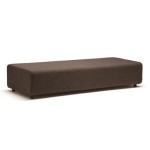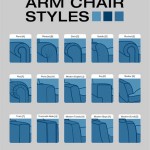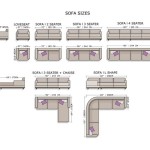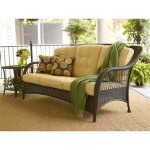Sofa or Couch: Unravelling the British English Conundrum
The words "sofa" and "couch" often spark debate regarding their interchangeability, particularly within British English. While both terms denote a piece of furniture designed for seating multiple people, subtle distinctions in usage and connotation exist. This article explores the nuances of "sofa" and "couch" in British English, examining their historical context, current usage, and regional variations.
Historical Origins
Understanding the historical roots of "sofa" and "couch" helps to illuminate their current usage. "Sofa" derives from the Arabic word "suffah," referring to a raised platform covered with cushions. This term entered the English language during the 17th century, initially denoting a luxurious and ornate piece of furniture. "Couch," on the other hand, originates from the Old French word "coucher," meaning "to lie down." This etymology points to a piece of furniture intended for reclining or resting.
Current Usage in British English
In contemporary British English, "sofa" and "couch" are generally considered synonyms. Most speakers readily interchange the terms without significant change in meaning. However, subtle distinctions persist in certain contexts. "Sofa" tends to be perceived as slightly more formal and is frequently employed in formal settings or when describing furniture within a higher price bracket. Retailers and interior designers, for example, often prefer "sofa" when showcasing premium furniture items.
Regional Variations
While both terms are understood across the United Kingdom, some regional variations in preference exist. "Sofa" appears to be more prevalent in southern England, particularly in urban areas. "Couch," conversely, enjoys greater popularity in northern England and Scotland. These regional preferences, however, are not absolute, and both terms are readily understood and used throughout the country.
Connotations and Perceived Differences
Despite their frequent interchangeability, "sofa" and "couch" carry subtle connotations that influence their usage. "Sofa" often evokes an image of elegance and sophistication, possibly stemming from its association with luxurious historical furniture. "Couch," in contrast, can suggest comfort and relaxation, aligning with its etymological connection to reclining.
Influence of Class and Social Context
The perception of "sofa" as more formal may link to social class and historical usage. Traditionally, more affluent households might have used "sofa," while "couch" may have been more common in working-class homes. Although these distinctions are less pronounced today, remnants of these historical associations might influence current usage.
Usage in Marketing and Advertising
The choice between "sofa" and "couch" in marketing and advertising plays a strategic role in targeting specific demographics. Companies marketing high-end furniture generally favor "sofa" to convey an image of luxury and exclusivity. Brands targeting a broader audience might opt for "couch" to project a sense of comfort and affordability.
The Impact of American English
American English predominantly uses "couch," contributing to the perception of "couch" as a more informal term. The increasing influence of American media and culture may further cement this association in British English, potentially leading to a gradual shift in usage patterns over time.
Evolution of Language and Usage
The evolution of language is a continuous process, and the usage of "sofa" and "couch" is no exception. While distinct connotations and regional preferences exist, the terms remain largely interchangeable in British English. Future trends in usage will likely be influenced by evolving social contexts, marketing strategies, and the ongoing interplay between British and American English.
Formal vs. Informal Contexts
Consider the context when choosing between "sofa" and "couch.” In formal writing or discussions about interior design, "sofa" often appears more appropriate. In casual conversation or informal settings, "couch" is perfectly acceptable. This distinction mirrors the general trend of formality in language, where specific terms hold greater precedence in formal contexts.

Sofa Or Couch Quick And Dirty Tips

Which Sofa Style And Shape The English Home

The English Sofa Company Calvert Luxury Fabric

Sofa Longman Definition Pictures Pronunciation Free Dictionar

Couch Wikipedia

About Us Made In Britain Sofas Stuff

Couch Definition And Meaning Collins English Dictionary

High Quality Sofas How Is Your British Sofa Made Stuff

Top 75 British Words Vs American You Need To Know Ms Southernverse Travel And Lifestyle

The English Sofa Company Handmade Bespoke Sofas Settees








